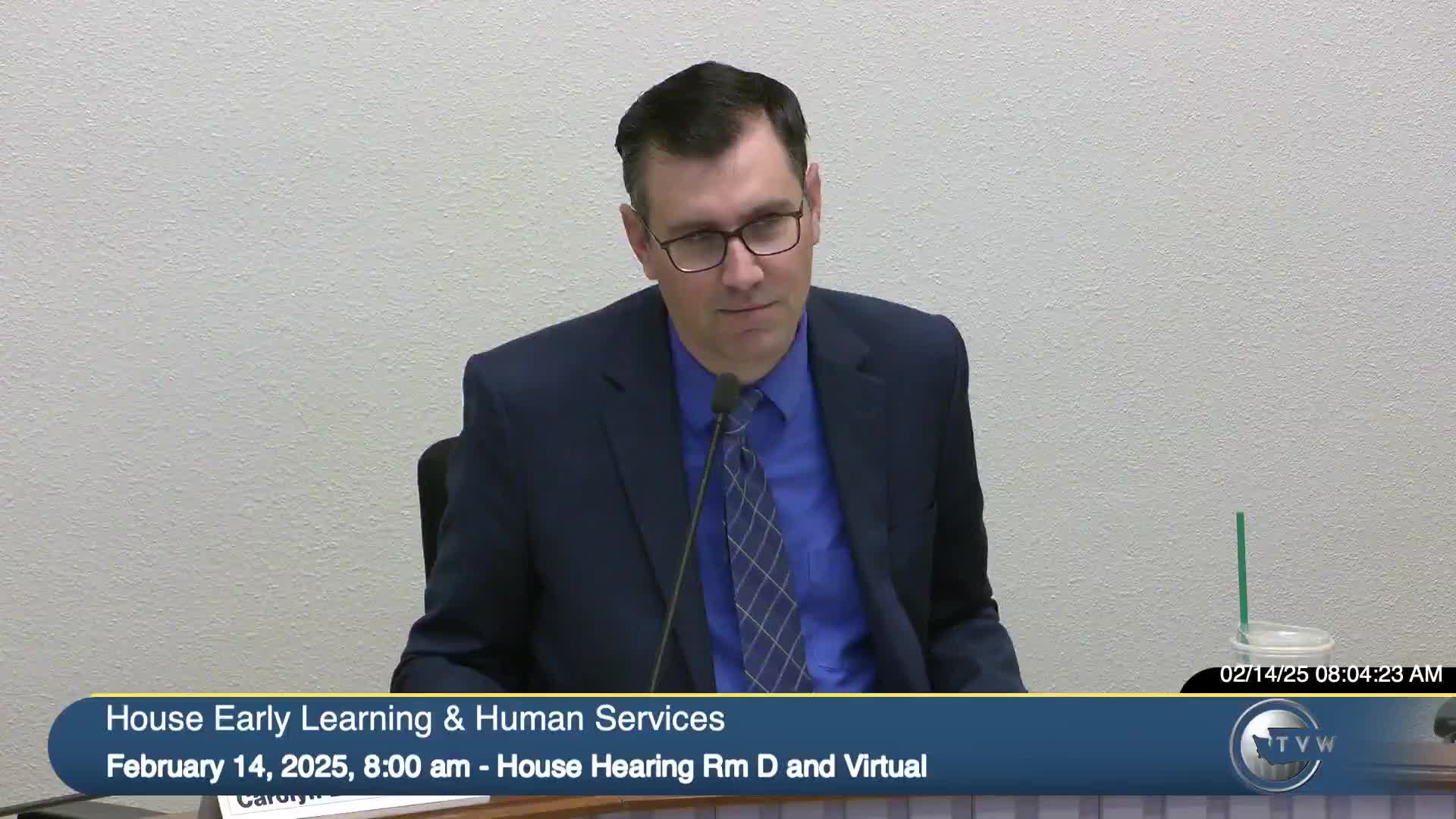Public testimony divides committee over narrow exemption to 7-day waiting period in Death With Dignity law
Get AI-powered insights, summaries, and transcripts
Subscribe
Summary
House Bill 1876, which would allow an attending provider to waive the seven‑day waiting period in Washington’s Death With Dignity law under narrow criteria, drew dueling testimony from patient‑advocates and clinicians at a committee hearing Friday.
House Bill 1876, which would create a narrow exemption to the seven‑day waiting period in the Washington Death With Dignity Act, drew sharply divided testimony at a public hearing of the Early Learning and Human Services Committee.
The bill, as briefed to the committee by staff counsel O'Meara Harrington, would allow an attending qualified medical provider to waive the seven-day waiting period between the first and second oral requests for life‑ending medication if the attending provider determines that: the patient is not expected to live for seven days; the patient is not expected to retain the ability to self‑administer medication for seven days; or the patient is experiencing "irremediable pain," defined in the bill as pain or other physical symptoms related to the terminal disease that cannot be reasonably managed or significantly alleviated by available treatment. The bill also clarifies certain provider‑selection rules and other technical definitions in the statute.
Supporters said the measure would prevent unnecessary suffering for a small subset of terminally ill patients whose conditions deteriorate rapidly. "Even the best palliative and hospice care cannot alleviate all suffering," Cassandra Sutherland, co‑executive director of End of Life Washington, told the committee. "The exemption of the waiting period could grant a small group of qualified patients who don't have seven days access to a compassionate death of their choosing." Dr. Jess Khan, medical director for End of Life Washington, testified from clinical experience in Oregon and said the exemption provides relief to patients who otherwise would be unable to self‑administer the medication because of rapid decline.
Several witnesses described personal experiences. Janice Woodcox recounted a friend with an inoperable cancer who was lucid for the first request but was unable to make the second request seven days later because of pain and confusion and subsequently died in distress. Gretchen Deroche described her husband’s sudden decline and said he died before the statutory waiting period allowed access to the law.
Opponents — including disability‑rights advocates, palliative and hospice clinicians, and physicians — urged caution. Conrad Reynoldson, an attorney with Washington Civil and Disability Advocates, warned that "removing necessary safeguards from these laws presents a greater danger to vulnerable populations who can easily be forced or pressured into making this permanent decision." Jean Welchill of the Washington State Catholic Conference and Dr. Sharon Quick of Physicians for Compassionate Care Education Foundation said pain is often remediable by specialty care, and that reducing the waiting period heightens the risk of an irreversible decision made while capacity or treatable mental‑health distress are present.
Several clinicians urged additional guardrails. Dr. Hope Wetchkin, medical director of Evergreen Health Hospice, told the committee the bill was drafted in response to a single constituent experience and had not been subject to broad stakeholder consultation; she urged the committee to pause and allow more expert review. Tracy Stearns Church, a hospice nurse practitioner, raised logistical concerns about rapid pharmacy access, transfer‑of‑care language and ensuring families have time to be involved.
Committee procedure: The hearing included an initial briefing and multiple public commenters both in person and online. Committee members kept the public hearing record open earlier in the day and later closed the hearing without a committee vote during the session.
What’s next: No committee vote was taken on HB 1876 during this session; the bill will remain available for future action or amendment. Supporters and opponents both asked for additional stakeholder engagement and for careful drafting of any narrow exemption to preserve safeguards for vulnerable patients.
